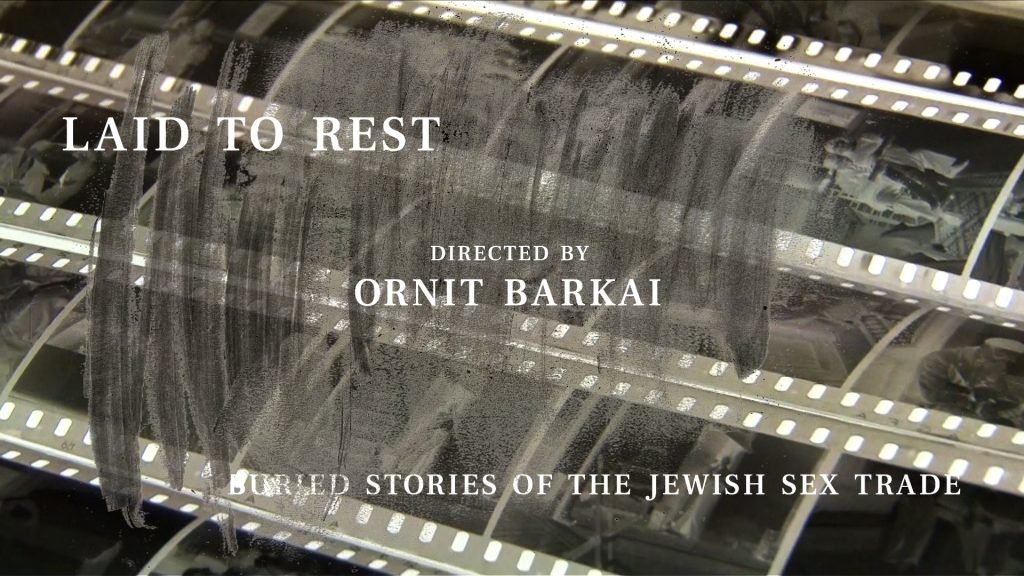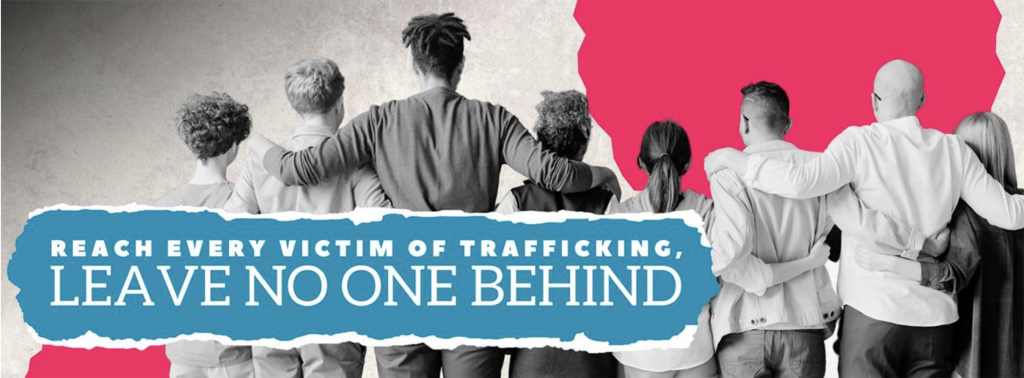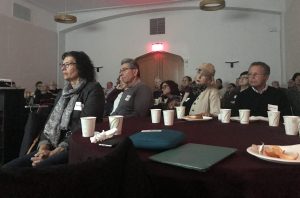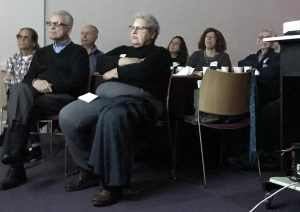A Journey of Resilience
1/11/2023
‘Laid to Rest’ overcomes hurdles as it digs deep into the Buried Stories of the Jewish Sex Trade. Stay tuned!
a tinro|media documentary
Archive of articles classified as' "Sex Trade"
Back home
‘Laid to Rest’ overcomes hurdles as it digs deep into the Buried Stories of the Jewish Sex Trade. Stay tuned!

July 30 marks the World Day Against Trafficking in Persons, and was was proclaimed by the United Nations General Assembly, in its resolution A/RES/68/192. “Leave no one behind” is the central, transformative promise of the 2030 Agenda for Sustainable Development and its Sustainable Development Goals (SDGs).
International days and weeks are occasions to educate the public on issues of concern, to mobilize political will and resources to address global problems, and to celebrate and reinforce achievements of humanity. The existence of international days predates the establishment of the United Nations, but the UN has embraced them as a powerful advocacy tool. We also mark other UN observances.
Yiddish archives expert Zachary Baker reads from Yiddish actor Menashe Skulnik’s memoir about his visit 1928 memorable visit to Buenos Aires.
I couldn’t have thought of a better place to present and talk about my film Laid to Rest than to a full house at the B’nai Jeshurun synagogue in Manhattan, New York. And, I couldn’t have thought of a better way to connect the dots between two Jewish communities through the legacy of the late Rabbi Marshall Meyer .
 The strong ties to Rabbi Marshall Meyer and to his legacy of social consciousness, are at the core of this documentary. Internationally recognized as a human rights activist, Rabbi Meyer worked in Argentina from 1958 to 1984 where he founded the Conservative Jewish movement at Templo Libertad. After two decades of civil rights and community work in Argentina during the “Dirty War”, Rabbi Meyer returned to the US to lead the B’nai Jeshurun community. When interviewed for the film, Rabbi Sergio Bergman praised Rabbi Marshall’s for his many contributions to the Argentinean Jewish community.
The strong ties to Rabbi Marshall Meyer and to his legacy of social consciousness, are at the core of this documentary. Internationally recognized as a human rights activist, Rabbi Meyer worked in Argentina from 1958 to 1984 where he founded the Conservative Jewish movement at Templo Libertad. After two decades of civil rights and community work in Argentina during the “Dirty War”, Rabbi Meyer returned to the US to lead the B’nai Jeshurun community. When interviewed for the film, Rabbi Sergio Bergman praised Rabbi Marshall’s for his many contributions to the Argentinean Jewish community.
“Today it is so easy to take for granted all the progress we’ve made on these kinds of issues. But the fact is, today, so many of these rights are under threat from all sides, always at risk of being rolled back if we let our guard down for a single minute.”
“These rights were secured through long hard battles waged by women and men, who marched and protested and made their voices heard in courtrooms and boardrooms and voting booths and the halls of Congress. And make no mistake about it: education was central to every last one of these efforts.”
— Michelle Obama said today in reference to women’s issues in the U.S. The First Lady spoke to a crowd today at Union Market in Washington, D.C. for #InternationalWomensDay, marking the first anniversary of Let Girls Learn.
Posted by PBS NewsHour on Tuesday, March 8, 2016
ReTweeting:
Trafficking Victims Held, Exploited in Sweatshops https://t.co/Qyfo6Q8mvk #Argentina pic.twitter.com/WobSKvEW1P
— Global Press Journal (@globalpress) November 11, 2015
Nepalese Women, Seeking Work, Are Exploited Abroad https://t.co/tF63dEL0aO #endit #makeitzero #globalpress pic.twitter.com/6GhVtqqjWq
— Global Press Journal (@globalpress) November 9, 2015
Dreaming of a better life in Argentina, the “Goldene Medinah”, a loving wife in Poland writes to her husband, asking that he hurry up and mail the necessary travel documents for her and their young children.
Letter and translation: Nora Glickman
Voice over: Annette Liberman Miller
Sound recording: Phil Skokos
With: Getz Media Lab, Hadassah-Brandeis Institute, and Brandeis-Women’s Studies Research Center/SSP program

Excellent program and engaging speakers and panelists at the UJA Federation of NY’s “We Were Slaves: the Jewish Community Unites Against Sex Trafficking” conference. A packed two-day event exploring the Jewish history and Jewish obligation to combat sex trafficking, the program provided essential information about modern day slavery and what can be done to stop it. A presentation and clips from the documentary-in-progress Laid to Rest: Buried Stories of the Jewish Sex Trade offered gripping historical perspectives on a shameful “buried” chapter of Jewish history and its unique characteristics, bringing to focus community action and cultural fight from within against the sex traders.
Thanks! @BGlickstein: @tinromedia @UJAfedNY We Were Slaves conf shows Laid to Rest her doc abt Jews involved in White Sex Trade #trafficking
— Ornit Barkai (@tinromedia) April 22, 2013
Presented by UJA-Federation of New York’s Task Force on Family Violence
Organized with:
AVODAH: The Jewish Service Corps
Equality Now
FEGS Health and Human Services
Footsteps
Jewish Child Care Association of New York (JCCA)
The Jewish Community Center in Manhattan; Metropolitan Council on Jewish Poverty
Mount Sinai Sexual Assault and Violence Intervention Program (SAVI)
National Council of Jewish Women (NCJW)
New York Board of Rabbis
New York Legal Assistance Group (NYLAG)
New York State Anti-Trafficking Coalition
Project Kesher
Sanctuary for Families
T’ruah: The Rabbinic Call for Human Rights
Uri L’Tzedek
When in Buenos Aires talk like a porteño… especially when stuck in traffic. Gustavo, a Buenos Aires native and Laid to Rest’s location producer explains:
The tango was born in the brothels at the port cities along the rio de la plata and therefore is synonymous with prostitution:
(From an interview with José Judkowski, author of El tango, una historia con judíos. Dance footage courtesy of El Viejo Almacen, Buenos Aires, 2010)